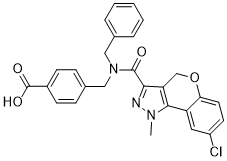It connects functionally those two major growth-regulatory pathways. However, the expression pattern and functions of BTG3 in HCC remain unknown. In this study, we detected the expression and methylation status of BTG3 in HCC cell lines and clinical samples, and determined its prognostic value. Then we examined the effect of BTG3 on HCC cell proliferation, cell cycle and invasion in vitro. As BTG3 was isolated by low-stringency screening of a cDNA library by using BTG1 and BTG2/TIS21 probes, its physiological functions started to be found, such as neuron phylogenesis, the control of muscle cell development and bone formation, especially, for the control  of cell cycle. Several studies have shown that BTG3 was associated with tumorigenesis. It has been reported as a candidate tumor suppressor gene in several cancers. However, the expression pattern and functions of BTG3 in the progression of HCC remain elusive. In this study, we provide evidence that BTG3 plays an important suppressive role in HCC progression especially tumor cell proliferation, invasion and cell cycle progression. First, we detected the expression of BTG3 in a large cohort of clinical paraffin-embedded HCC tissues with long-term followup, 20 paired fresh HCC tissues and 5 HCC cell lines. The results showed that BTG3 had a higher probability of being down-regulated in HCC tissues. BTG3 expression was an independent prognostic marker for survival of HCC patients. Moreover, BTG3 expression, portal vein thrombosis, differentiation, distant metastasis, dissemination and relapse were singled out as six marked and independent prognostic factors relative to overall survival. Besides BTG3 expression, the five other factors are AbMole Taltirelin well-acknowledged indicators in the progression of HCC. Down-regulation of BTG3 was also observed in 20 paired fresh HCC tissues and 5 HCC cell lines compared with the hepatocyte cell line LO2. Many BTG proteins such as BTG4, TOB1, TOB2 are aberrantly expressed and serve as negative regulators in tumorigenesis in various cancers. Our data clearly demonstrate that the decreased expression of BTG3 is associated with the progression of HCC and an independent prognostic marker for survival of HCC patients. Increased DNA methylation of CpG islands in the promoter region of genes is well AbMole Diniconazole established as a common epigenetic mechanism for the silencing of tumor suppressor genes in cancer cells. Aberrant hypermethylation status of BTG3 promoter was reported in some human cancers. In this study, we examined whether transcriptional silencing of BTG3 was due to the promoter hypermethylation. Results showed that down-regulation of BTG3 in two HCC cell lines could be reversed by 5Aza-C treatment, which forms a covalent complex with the active sites of methyltransferase resulting in generalized demethylation.
of cell cycle. Several studies have shown that BTG3 was associated with tumorigenesis. It has been reported as a candidate tumor suppressor gene in several cancers. However, the expression pattern and functions of BTG3 in the progression of HCC remain elusive. In this study, we provide evidence that BTG3 plays an important suppressive role in HCC progression especially tumor cell proliferation, invasion and cell cycle progression. First, we detected the expression of BTG3 in a large cohort of clinical paraffin-embedded HCC tissues with long-term followup, 20 paired fresh HCC tissues and 5 HCC cell lines. The results showed that BTG3 had a higher probability of being down-regulated in HCC tissues. BTG3 expression was an independent prognostic marker for survival of HCC patients. Moreover, BTG3 expression, portal vein thrombosis, differentiation, distant metastasis, dissemination and relapse were singled out as six marked and independent prognostic factors relative to overall survival. Besides BTG3 expression, the five other factors are AbMole Taltirelin well-acknowledged indicators in the progression of HCC. Down-regulation of BTG3 was also observed in 20 paired fresh HCC tissues and 5 HCC cell lines compared with the hepatocyte cell line LO2. Many BTG proteins such as BTG4, TOB1, TOB2 are aberrantly expressed and serve as negative regulators in tumorigenesis in various cancers. Our data clearly demonstrate that the decreased expression of BTG3 is associated with the progression of HCC and an independent prognostic marker for survival of HCC patients. Increased DNA methylation of CpG islands in the promoter region of genes is well AbMole Diniconazole established as a common epigenetic mechanism for the silencing of tumor suppressor genes in cancer cells. Aberrant hypermethylation status of BTG3 promoter was reported in some human cancers. In this study, we examined whether transcriptional silencing of BTG3 was due to the promoter hypermethylation. Results showed that down-regulation of BTG3 in two HCC cell lines could be reversed by 5Aza-C treatment, which forms a covalent complex with the active sites of methyltransferase resulting in generalized demethylation.
BTG3 triggers acute cellular senescence via the ERK-JMJD3-p16 signaling axis
Leave a reply